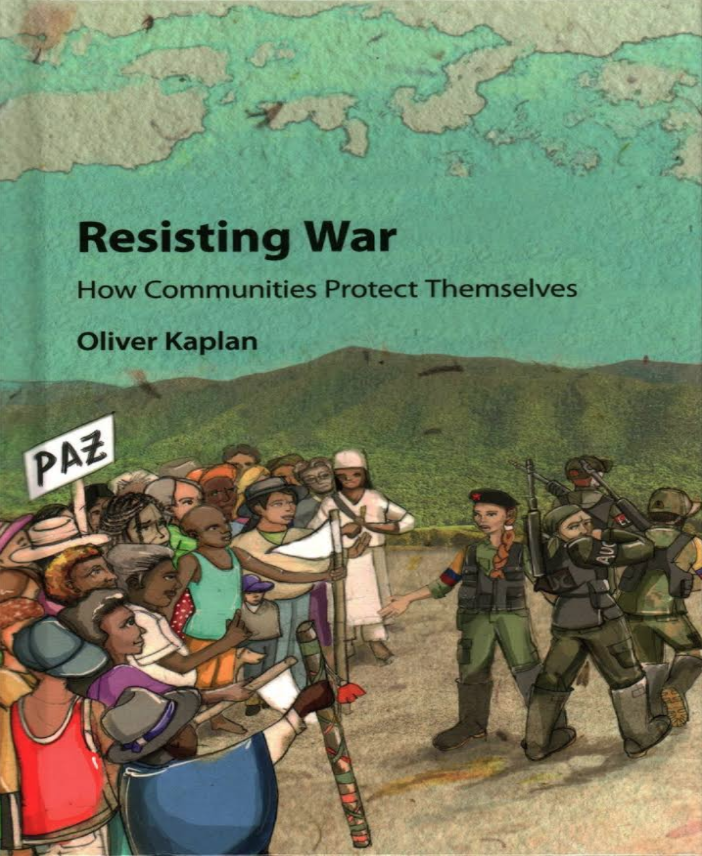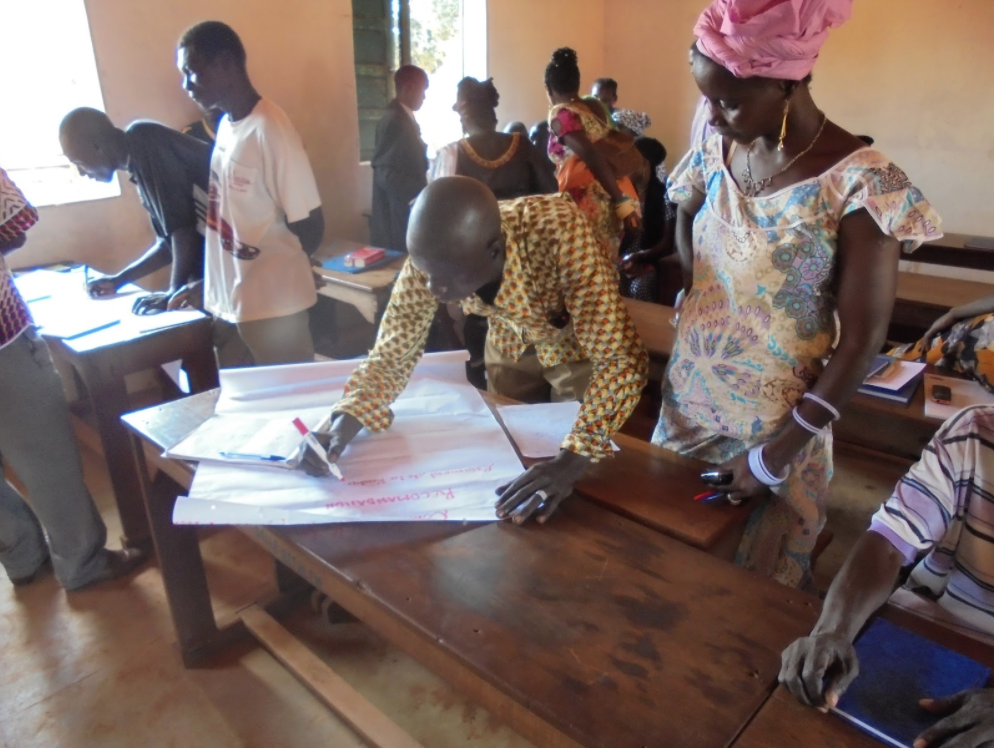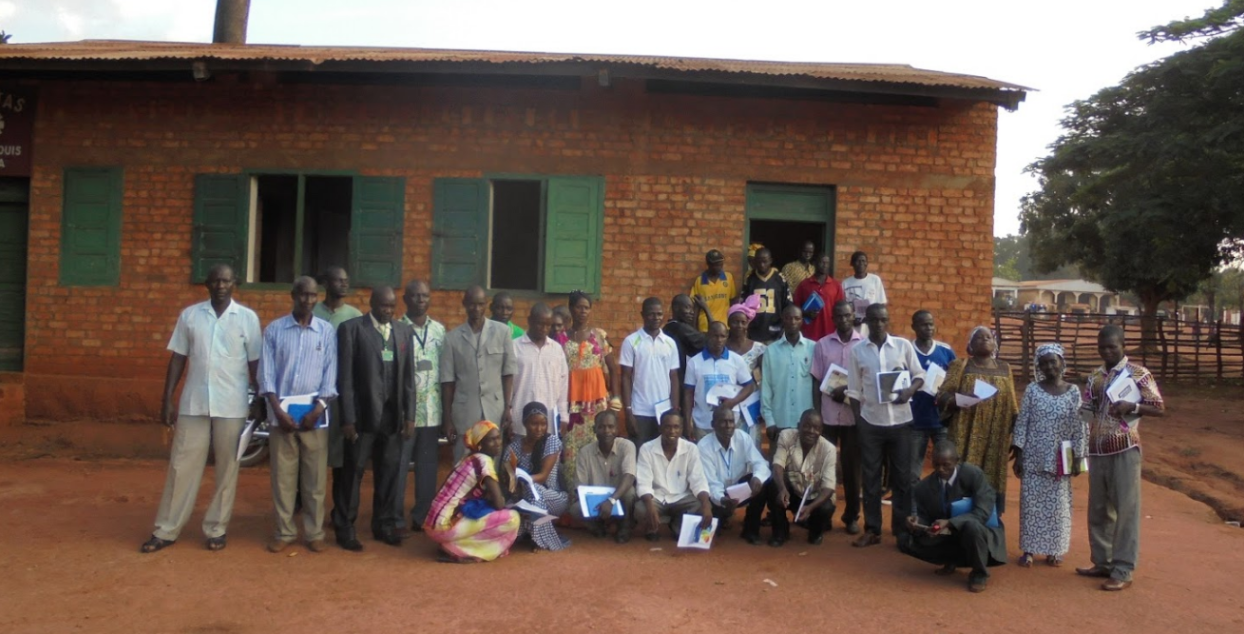Last week, our Director of Research and Policy, Paul Ronan, attended a panel discussion, hosted by the United States Institute of Peace (USIP) here in Washington DC. The discussion, centered on USIP fellow, Oliver Kaplan’s new book, Resisting War: How Communities Protect Themselves, and focused on the ways that communities in areas impacted by violent conflict find ways to resist and prevent violence. Since that’s exactly what our programs are designed to help communities in central Africa do, we knew we couldn’t miss the opportunity to learn more.

Much of Kaplan’s book and the discussion at last week’s event, highlight the powerful ways communities in Colombia have responded to a decades-long conflict involving the Colombian government and armed groups like the Revolutionary Armed Forces of Colombia (FARC). Through research in Resisting War, Kaplan underlines how effective efforts within Colombian communities to build solidarity and organize protest, have been in preventing violent conflict. In the discussion, Kaplan spoke of how some armed groups responded to community resistance — with some former FARC members going so far as saying that they and other members of armed groups respected communities that presented solidarity.
While every community and situation is different, Kaplan’s research, and the discussion of panel experts at USIP last week, underscores the importance of supporting locally-led efforts of civilian protection in areas affected by violent conflict. According to Kaplan’s research these sorts of efforts have been effective in South America, and we see it every day in the communities we work with in central Africa— communities like Obo in the Central African Republic (CAR). Despite rising armed group violence in areas around them, Obo has remained relatively peaceful, thanks to their locally-led Peace Committee, which has taken several steps to unify the community around the common goals of safety and peace.

Members of Peace Committees in CAR collaborating on solutions to challenges in their communities.
Beyond saving lives in the immediate, locally-led efforts to protect civilians and prevent violent conflict, like those in Colombian and Central African communities also play an undeniable role in lasting peace. These efforts have three important impacts:
1. Locally-led efforts create breathing room for reconciliation efforts. This is particularly important in CAR, where there is an increasing level of violence targeting people based on ethnicity, religion and livelihood.
2. Locally-led efforts help prevent opportunistic exploitation of communities by armed groups and incentivize commitment to political processes. In other words, when communities are able to organize together and prevent violent conflict, they become less vulnerable to armed groups who might exploit communities for their own gain.
3. Locally-led efforts help interrupt cycles of revenge killings and create the space needed for state building. This is especially important for communities in CAR, where armed groups control most of the country.

Invisible Children brings together members of local Peace Committees for trainings and workshops that help them promote peace and protect their communities.
We know that communities themselves hold the keys to breaking cycles of violence and creating lasting peace. That’s why we are committed to supporting local solutions, which make families in central Africa safer from violence. Programs like Trauma Healing Workshops, training of locally-led Peace Committees, and our Early Warning Radio Network are designed to equip central African leaders with tools to make their own families and communities safer.
In the same way that local communities must rally together to end violence, we as a global community must do the same. The Central African leaders we work alongside are truly heroes whose efforts to prevent violence are making their communities safer but, as long as they remain unprotected, peace is not guaranteed. At Invisible Children, we believe that our liberty is bound together with vulnerable communities in Columbia, CAR, and around the world. So, as we continue to support efforts to prevent violence at the community level in central Africa, we’re also calling on world leaders to take steps to protect families there, so that these community efforts have the opportunity to continue building a path toward lasting peace.
Think people should hear about this?